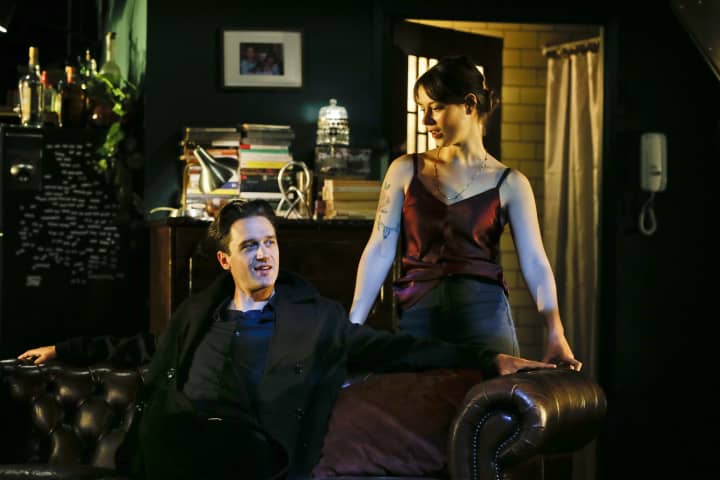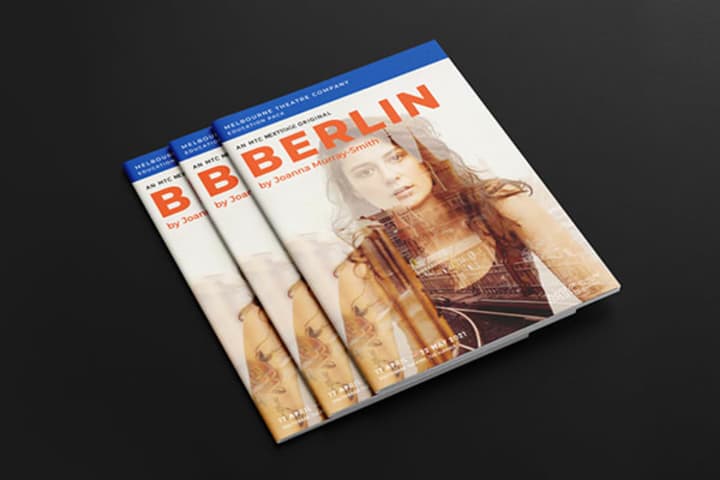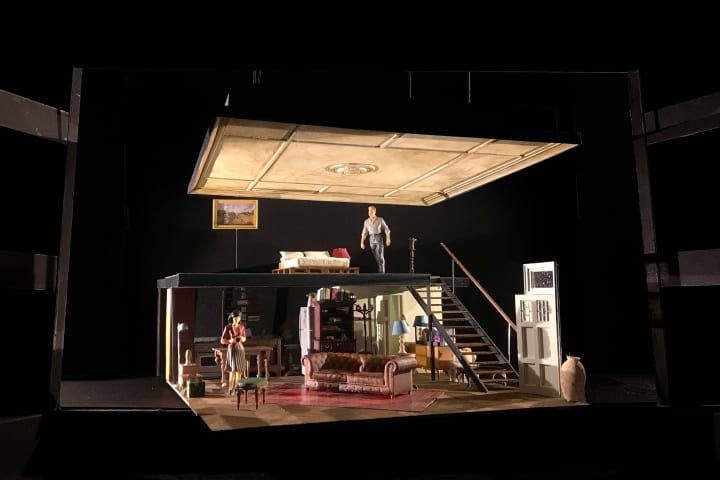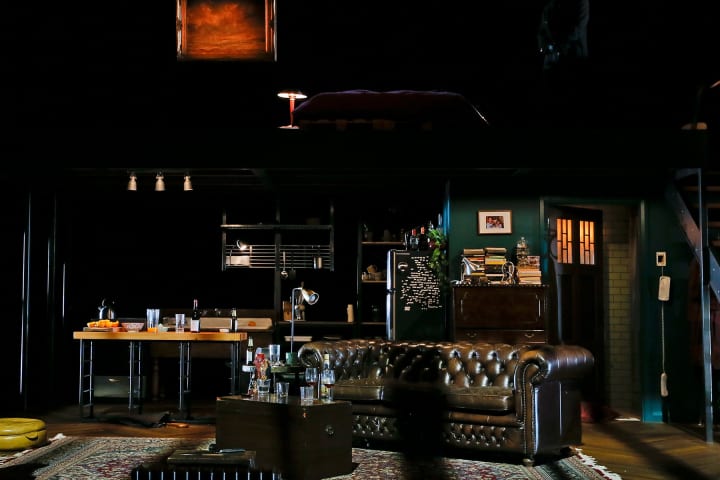Joanna Murray-Smith’s first-ever professional play, Atlanta, was about a young Jewish woman haunted by stories of the Second World War. ‘It wasn’t very successful,’ Murray-Smith remembers. ‘The production didn’t hold up.’ That was nearly 30 years ago, marking the playwright’s first and last attempt to write a Jewish character into one of her stories. Until now.
The idea for Berlin came about on a trip to the German city with her family several years ago. While riding the U-Bahn, she was reminded of how the past intersects with the present, and consequently how people reconcile the dark history of their nation with their everyday lives. Attending dozens of museums and memorials dedicated to the murdered Jews of Europe allowed the prolific playwright to re-examine her personal heritage – her mother fled Poland with her family in 1939, landing in Melbourne at the age of 11 as a refugee – and allowed her to look at the way that lineage extended to her adult children. ‘In Berlin, I began to think about how it would feel to be a young German person. How do you make peace with your identity and nationality when everywhere you go there are constant reminders of the war?’
Murray-Smith’s mother was culturally connected to her Jewish heritage, but wasn’t religious. She eloped with the playwright’s father – a member of the Church of England – and raised three children, observing Christian holidays and festivals. It wasn’t spoken of often, but every now and then a story would come up that was spine-tingling. ‘Every single person they knew in Poland perished. For most Jews, the war is a living inheritance,’ she reflects. ‘It isn’t history at all.’
‘The question at the heart of the play is whether it’s possible for a German and a Jew to fall in love without the past hovering, like a shadow, over their relationship.’
Murray-Smith’s mother made a concerted effort to understand the British colony and assimilate into the Australian way of life when she arrived 80 years ago. The war metastasised in a plethora of ways for those who survived it, the dramatist explains. ‘In my mother’s case, she fetishised material objects. She was an unbelievable Anglophile. She grew up to become an English teacher and had absolutely no accent. There was no hint of her refugee background at all. However, she was also very European. She was incredibly well-read and was unbelievably knowledgeable about classical music, poetry and literature.’ As a result, Murray-Smith and her siblings grew up with a split cultural identity. ‘I embody both sides of the coin,’ she says laughing. ‘My snobby Toorak WASP [White Anglo-Saxon Protestant] side, and my Jewish side.’
The matrilineality of Judaism is such that Murray-Smith is Jewish, she recognises, even if she feels like a ‘false representation’ at times. Orthodox Jews – including her late maternal grandfather – believe matrilineal descent is a metaphysical concept relating to the Jewish soul. It’s a notion that rings true for the playwright. ‘I think I have a very strong internal cultural connection … with my brother and sister, we’ve always been interested in Jewish history and the cultural legacy that comes with it.’
‘The actual experience of being young, I don’t think it’s terribly different for any of us.’
At the heart of her play is the question of whether the history we inherit from our families, and the emotion attached to that history, can ever be reconciled. Human relationships have long underpinned Murray-Smith’s storytelling. It’s not surprising then that the characters she imagined in Berlin would embark on an intense love story. Her protagonists, Charlotte and Tom, are in their early 20s when they cross paths at a Berlin bar and their whirlwind romance begins. ‘They have all the passion, attraction, obsession and exhilaration of falling in love. However, what if that was set against the backdrop of their personal histories?’ she asks. ‘And so the question at the heart of the play is whether it’s possible for a German and a Jew to fall in love without the past hovering, like a shadow, over their relationship.’
One of the things she found so beguiling about Berlin was how sophisticated and cosmopolitan the city was, in contrast to the carefully preserved ruins dotted across the metropolitan grid. ‘We associate the city with this horrific history, however it has grown up to become – what I think at least – the most progressive city in Europe today. It’s a city that is alive to the needs and to the demands of the current world.’
Berlin is playing at Southbank Theatre from 17 April until 22 May, 2021.
Published on 29 March 2021





